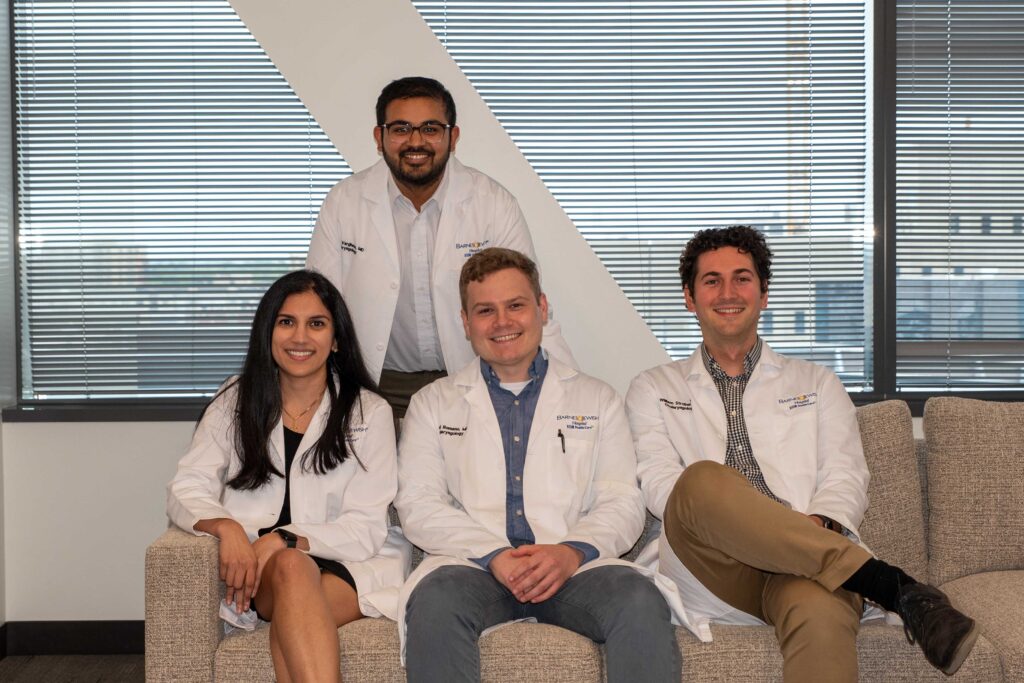Physician-scientists are physicians who devote a consistent portion of their professional effort toward research to learn more about health, disease, or the optimization of patient care. The Physician-Scientist Training Program at Washington University’s Department of Otolaryngology has offered this specialized training for over 40 years.
Learning the ins and outs of scientific pursuit adds a level of complexity to the already rigorous schedule of a surgical residency. One of its most successful educational tools has been the Academic Career Development Conference or ACDC.
According to Program Director Jay Piccirillo, MD, the primary goal of the ACDC is to provide opportunities for trainees to present and critically discuss their planned and ongoing research projects, grant applications, and manuscripts, with an emphasis on scientific rigor and reproducibility; the responsible conduct of research; and other aspects of career development.
“We strive to facilitate the development of the trainee’s role as a professional member of a community of physician-scientists,” said Piccirillo. “One of the unique opportunities the ACDC provides is direct contact with and feedback from faculty mentors who are themselves established researchers.”
The annual ACDC agenda includes interactive sessions with current faculty and guest speakers that cover grant writing, manuscript preparation, career development, and helpful research tools.
“The expert advice from faculty mentors with successful academic careers is the most important benefit of ACDC,” said otolaryngology resident Jordan Varghese, MD. “The mock grant and manuscript review sessions provide highly valuable and targeted feedback from reviewers who understand the clinical aspects of otolaryngology research and the resources available at our institution.”
Resident Will Strober, MD, also appreciates the mock review sessions for providing some insight into how these sessions actually function.
“This is always very practical advice for residents who are drafting their own grant applications and manuscripts,” he said. “And, to receive this feedback from panelists who have developed their own successful careers is invaluable.”
For resident David Lee, MD, the most important benefit of ACDC is engaging in a culture that values intellectual curiosity.
“The sessions inspire collaboration and provide an unequaled opportunity for peer mentorship,” he said. “We get to showcase our active projects and receive critical feedback on ways to improve our science.”
According to Piccirillo, the success of the program is not only reflected by the high satisfaction expressed by residents, but also the large number of WashU alumni that hold leadership positions in academia.
